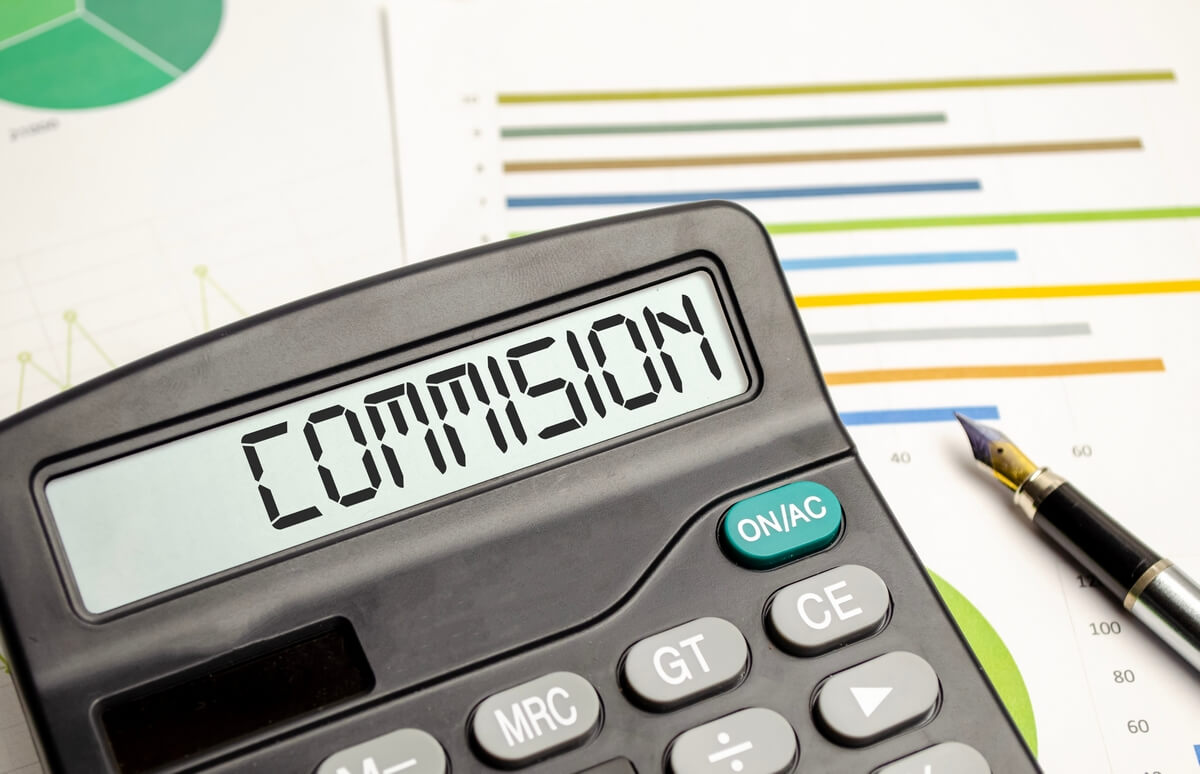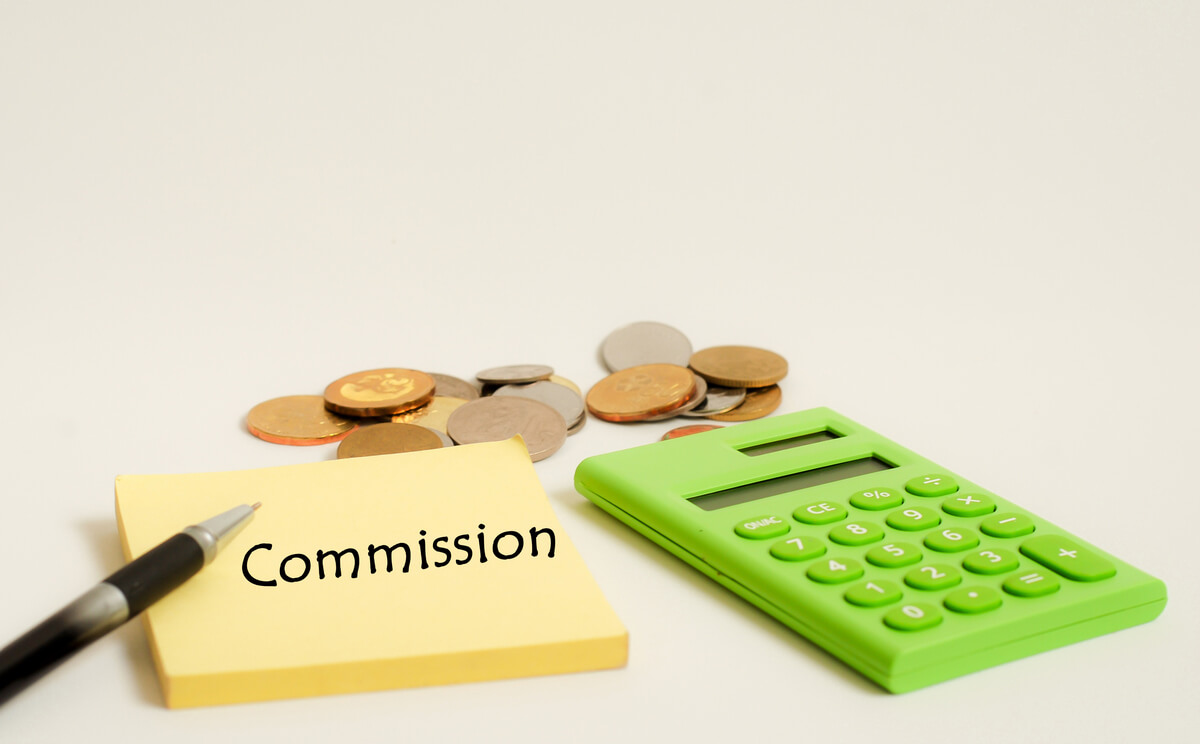The commission is a sizable expense when selling your home, so it’s natural to be curious about where it goes. You might calculate the commission you pay to your broker and feel surprised that they make so much off of one sale. However, this money gets divided between several parties.
Homeowners are sometimes tempted to sell their homes as-is to avoid paying commission. The agents and brokers provide a valuable service, though, which is why the commission percentage is so significant. If you’re planning to sell your home, you should understand where your commission goes and why the commission is so important.

How Much Is the Average Commission?
The average commission rate for real estate is 5% to 6% of the property’s sale price, but the rate is typically closer to 6%. When you put your home on the market, you and your broker will sign a listing agreement that outlines the terms of the listing. This contract will include the broker’s compensation.
Your commission percentage is always negotiable. There is no set rate or percentage in the industry that brokers must charge. Some agents or brokers may be more flexible than others with negotiating rates, but if you’re not happy with the terms one broker offers, you can always work with a different broker.
Some brokers charge a flat fee instead of a percentage of the sale, but this is far less common. In some cases, brokers charge a flat fee on top of the commission percentage. This flat fee is not shared with the buyer’s brokers or other entities. It typically goes directly toward the listing broker’s administrative costs.

Who Receives a Cut of the Commission?
When you sell your home, you pay a commission to the listing broker. A broker is a real estate agent who has completed additional training and has met state licensing requirements. In some states, real estate agents work under a broker; however, North Carolina is a broker-only state. That means all licensed real estate agents are brokers or provisional brokers. After an agent takes the licensing course and passes the state test, they become provisional brokers and have 18 months to complete 90 hours of additional classes to become fully licensed brokers.
All real estate agents (brokers) in NC must work under a brokerage. Although you pay your listing agent to help you sell your home, this individual only keeps a portion of the funds. It’s actually shared among multiple parties and the split starts at the top – the brokerage.
The distribution of the commission should be disclosed by your listing agent or brokerage. No seller should be kept in the dark about where their commission fees are going. If you’re unsure how the commission will be broken up, you should ask your real estate agent for clarification.
The listing brokerage will first pay the home buyer’s brokerage. A 50/50 split between the listing and buying brokerage is most common, but different arrangements do sometimes happen. The buying brokerage will use these funds to pay their agent. In most cases, 60% of the money goes toward the agent while the brokerage keeps the remaining 40%. This can vary depending on the brokerage and if they have commission tiers that pay according to production. The agent’s percentage is used to pay business expenses and fees. For example, the agent must pay a fee to the real estate commission and to access the MLS, which is the database of properties for sale.
Similarly, your listing brokerage will pay your listing agent. Most listing brokers pay their agents 60%, but agents sometimes make more depending on their experience. If a team of agents works on the sale, everyone will get a cut of the commission. The listing agent then uses that commission to cover all the marketing and promotion of your home that they did before they were even paid.
Agents sometimes make a set salary instead of a commission, which means their pay will stay the same regardless of the size of the sale and commission percentage. This model is becoming somewhat more popular, but commission percentages are still the standard in the real estate industry.
The average real estate transaction involves a listing brokerage, listing agent, buying brokerage, and buying agent. If you sold a $300,000 home with 6% commission, the total commission amounts to $18,000. If a 50/50 split is agreed upon, the listing and buying brokers will both receive $9,000. Then, if both brokers give 60% of their cut to their agents, the agents will receive $5,400. The brokers will both receive $3,600 to cover business expenses and their own salaries.
Sometimes, fewer parties are involved in the transaction. For example, if the seller’s agent lists the home and finds a buyer, they will keep the buyer agent’s side of the commission (minus the brokerage fees). Similarly, if the buyer’s agent works at the same brokerage as the listing agent, the brokerage will give the buyer’s agent a break on fees.
If the seller was referred to the listing agent or brokerage through another company or organization, that entity would also receive a portion of the commission fees. This percentage varies but typically is between 20% and 40%. That is taken out of the listing agent’s commission before they pay any of their expenses. Of course, all of this may vary according to the brokerage and their agreement with the listing agent.

When Do You Pay the Commission?
The seller pays the commission costs during the closing of the deal. Unless the seller and buyer negotiate a different arrangement, the seller is always responsible for paying the commission. As the seller, you should consider the commission costs when determining your asking price and negotiating with the buyer. In a way, the buyer indirectly pays the commission because the expense is built into the sale price of the home.
The commission is usually a large sum of money, so it can be tempting to try to sell your home without an agent to avoid this fee. However, homes listed independently by the owners sell for less on average than homes sold by brokers. Your agent and brokerage offer so many helpful services during the process, such as advising you on the listing price, staging your home for sale, and managing the marketing and advertising of the property. Working with a brokerage makes the process faster and easier, and it helps you get a higher price on your home.
Your commission fee supports all of the people involved in the sale of your home. The listing and buying brokers and agents split the commission, and any other parties involved in the process will receive a cut as well. To learn more about how exactly the commission on your home sale is broken up, you should consult with your agent and brokerage.




